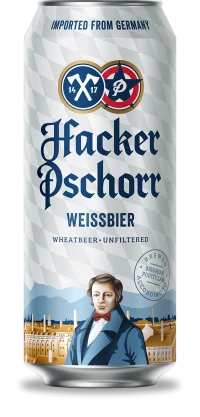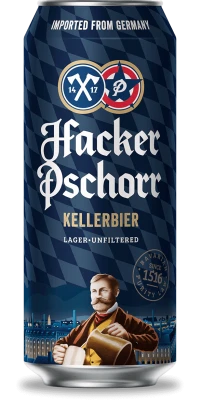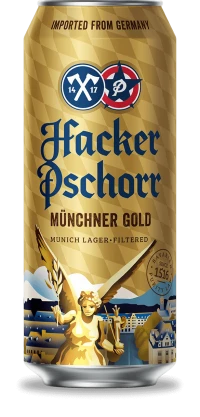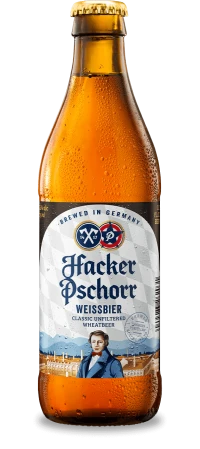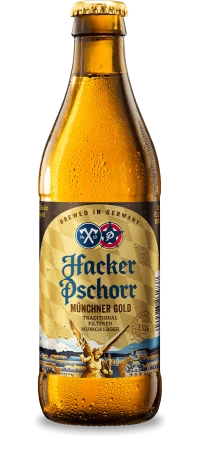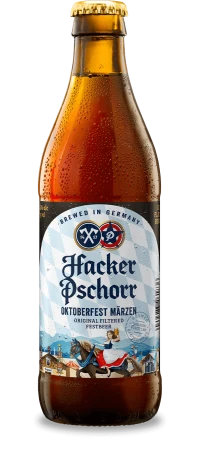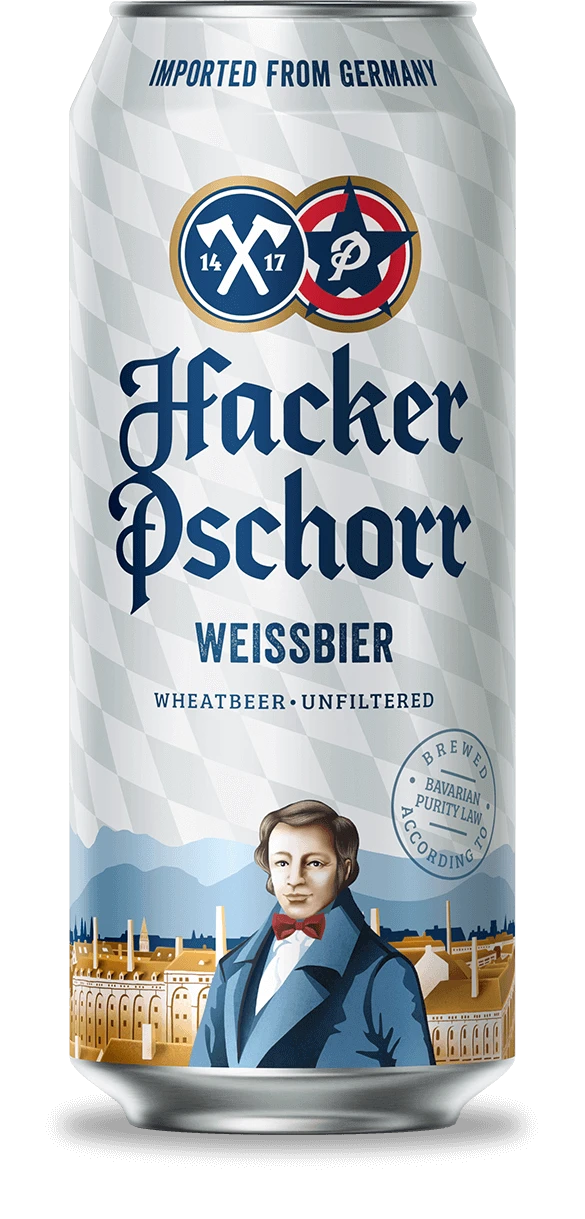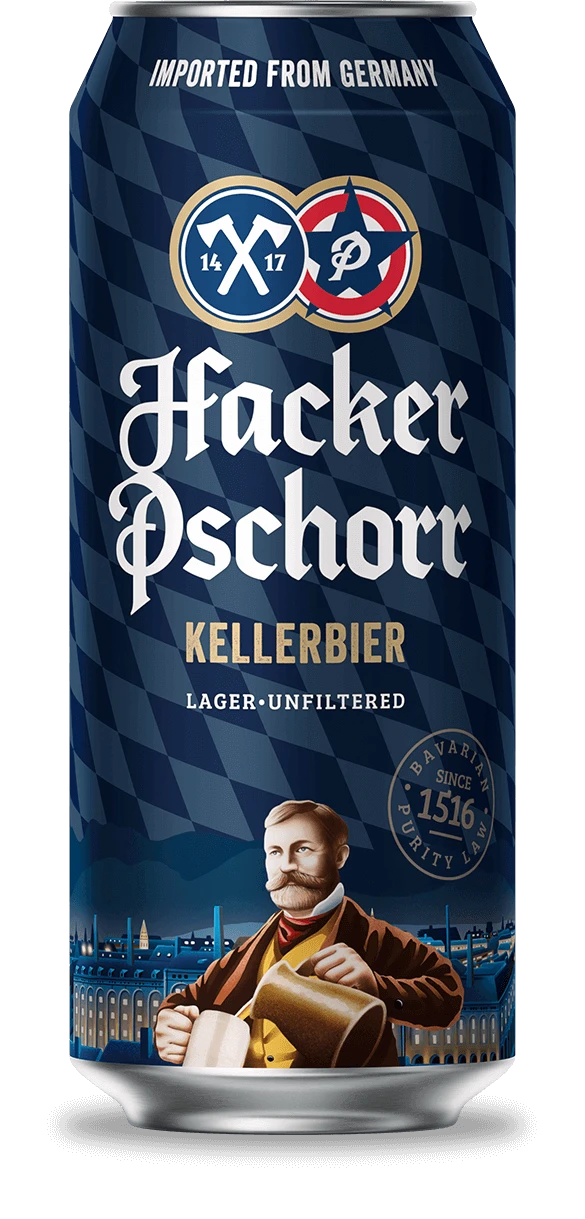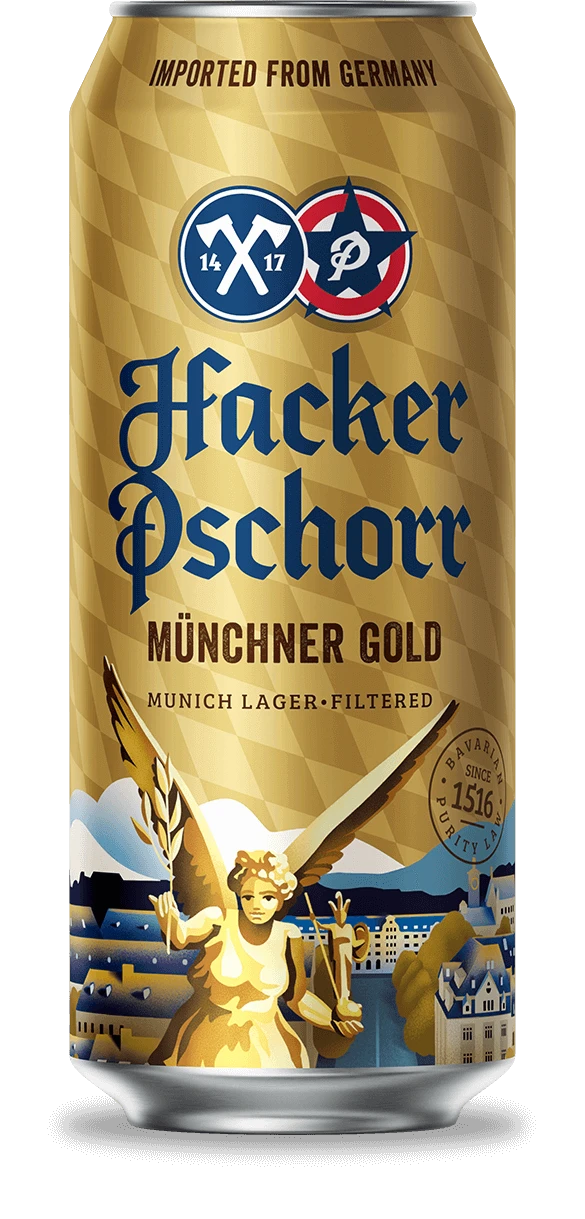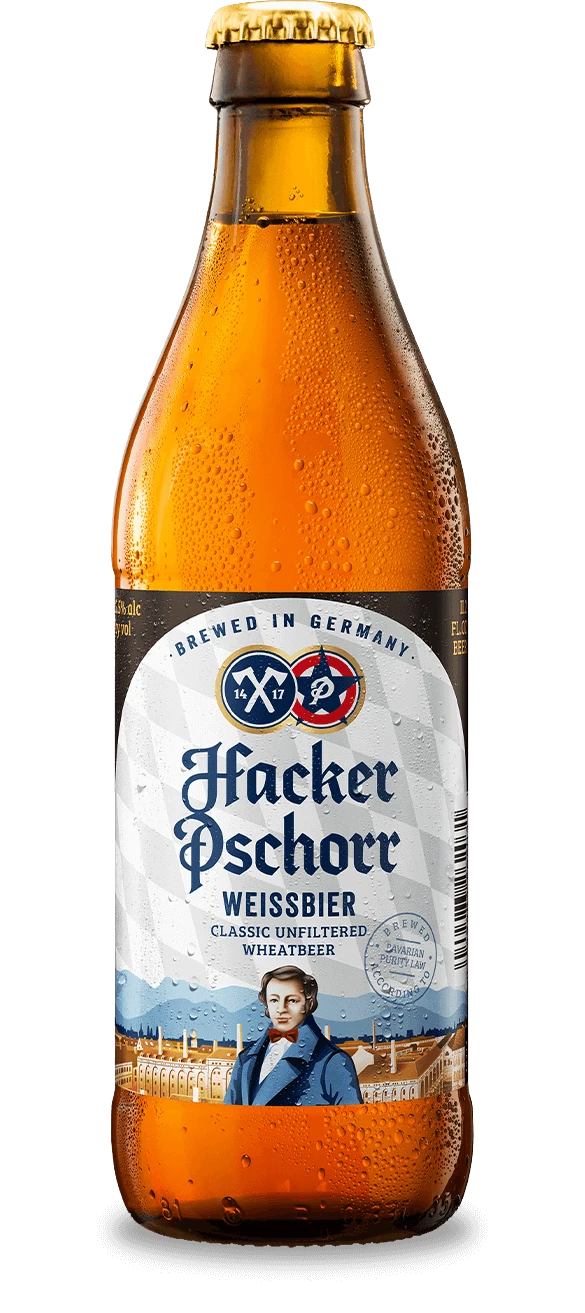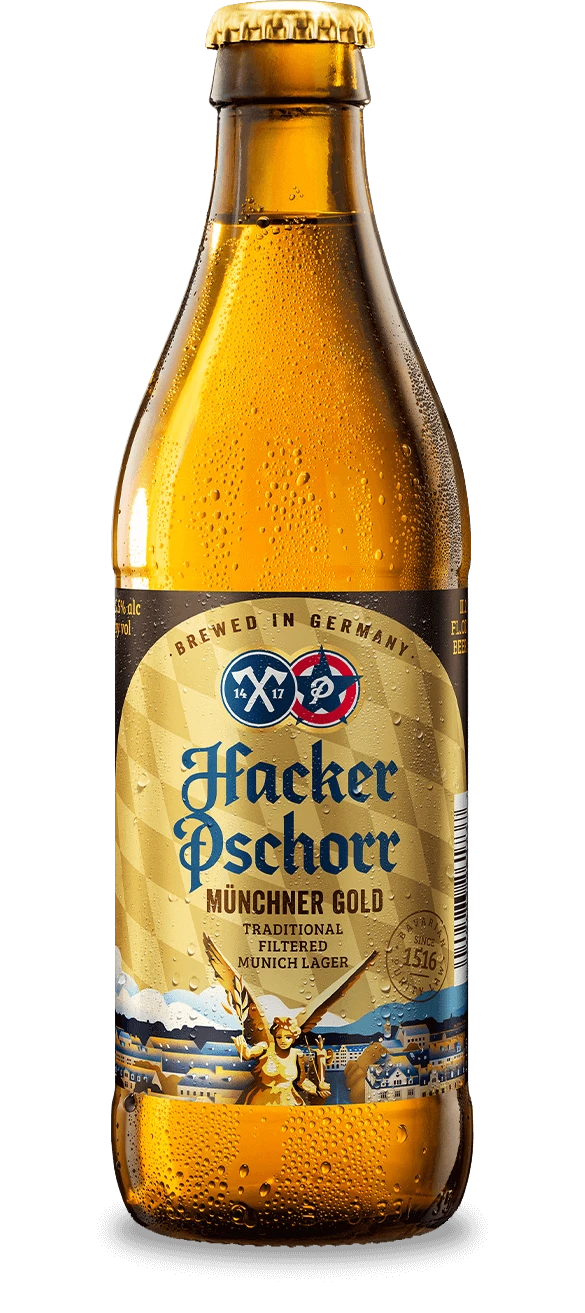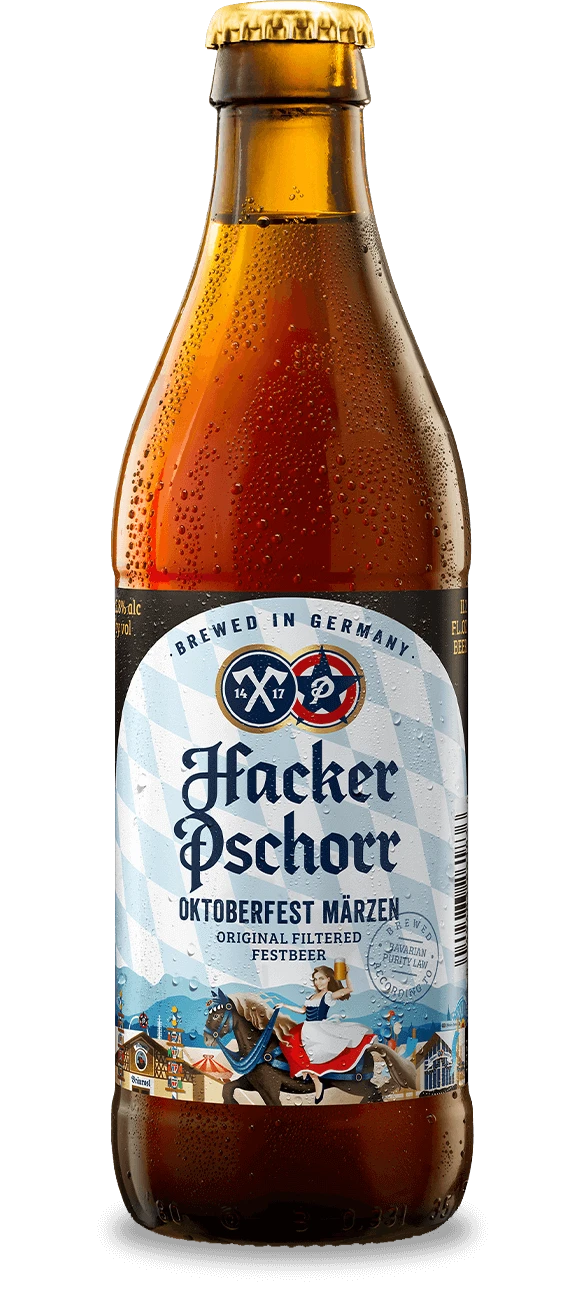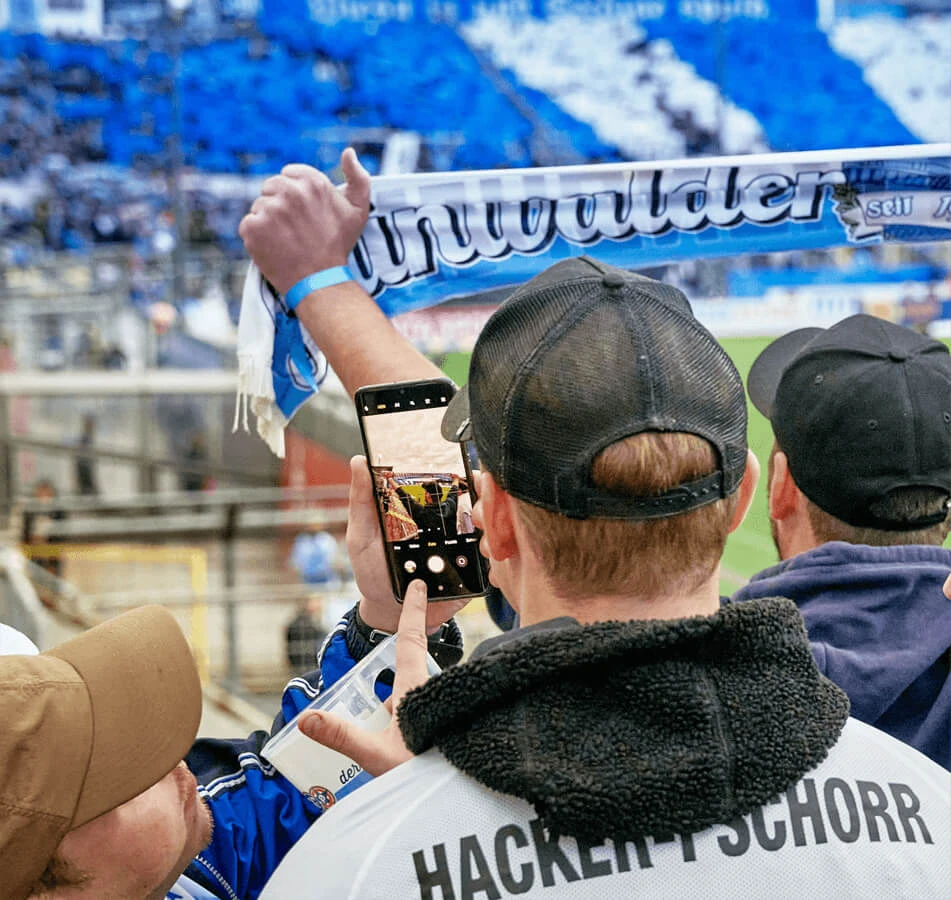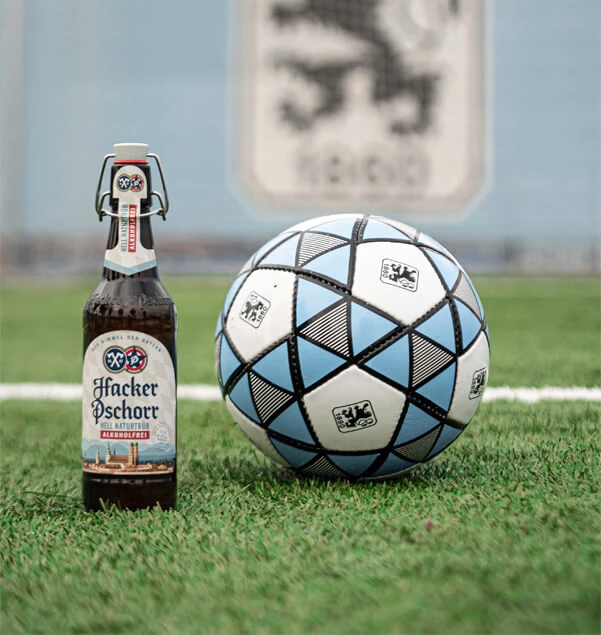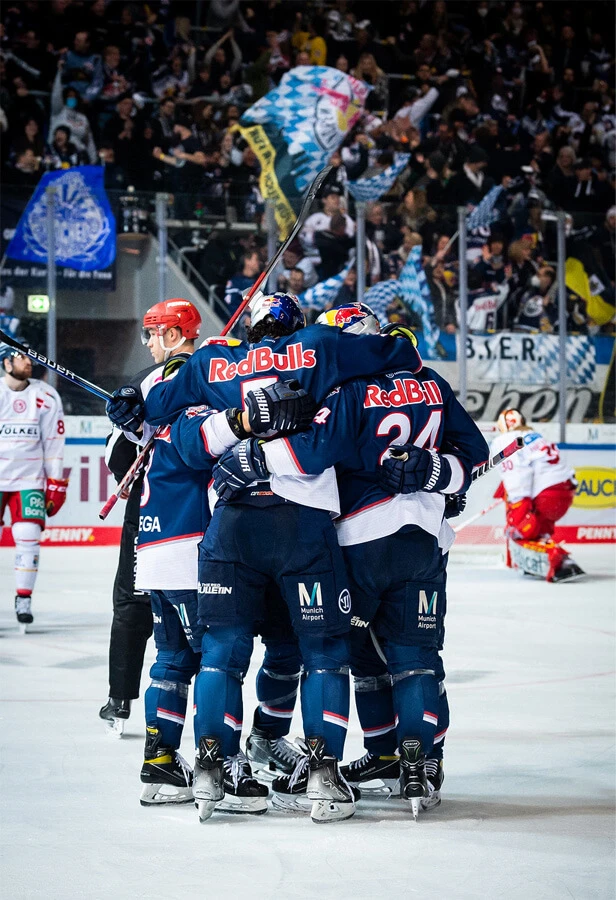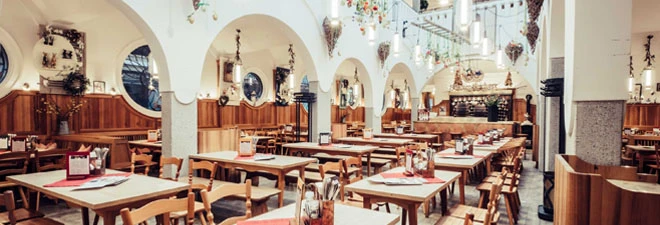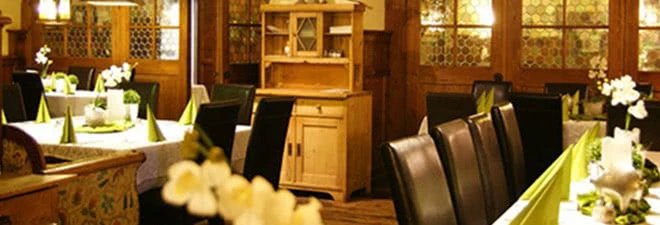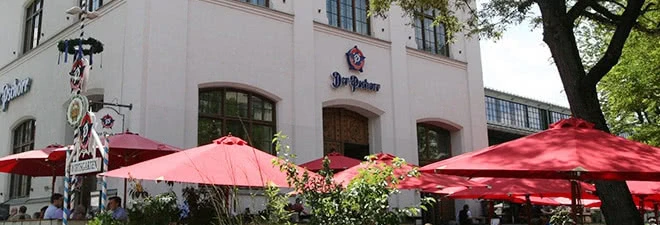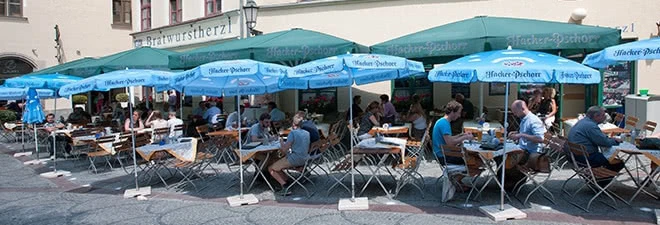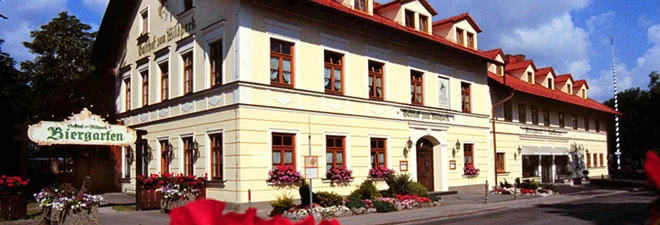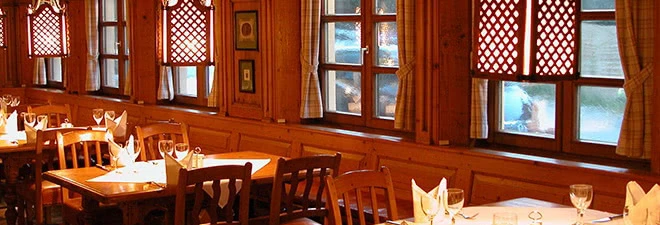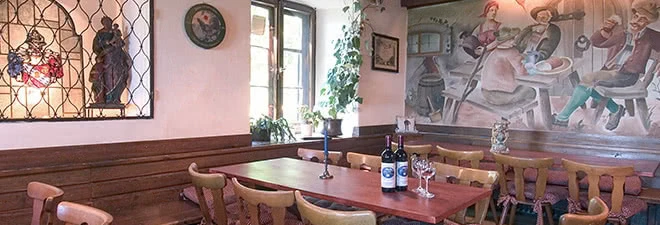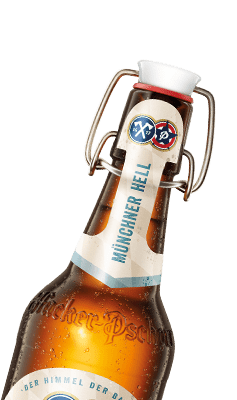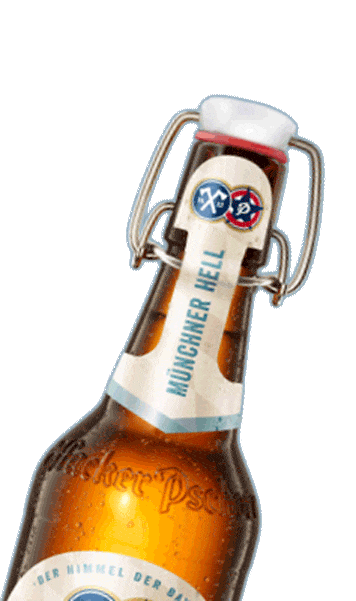















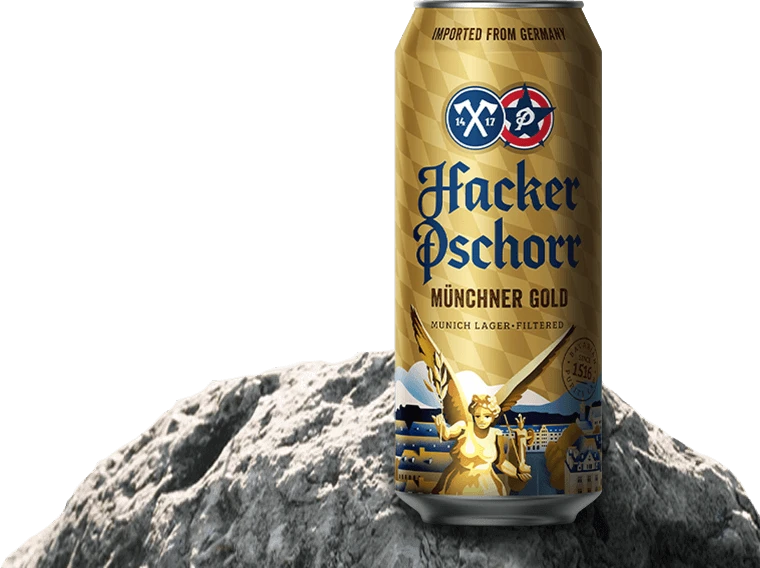
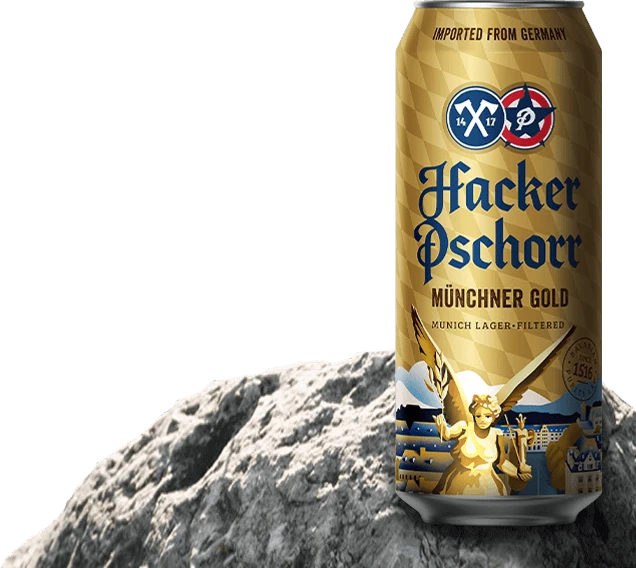

#hackerpschorr
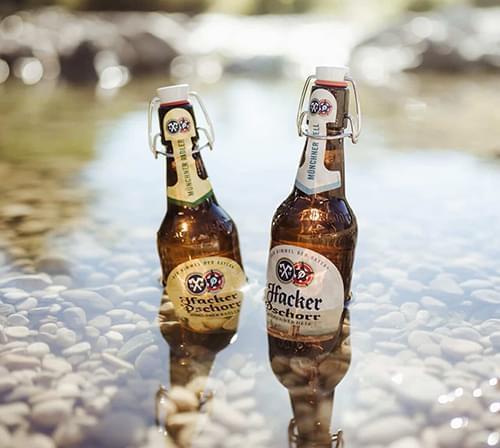
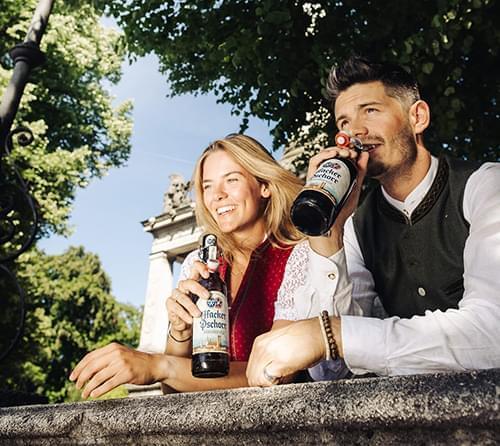
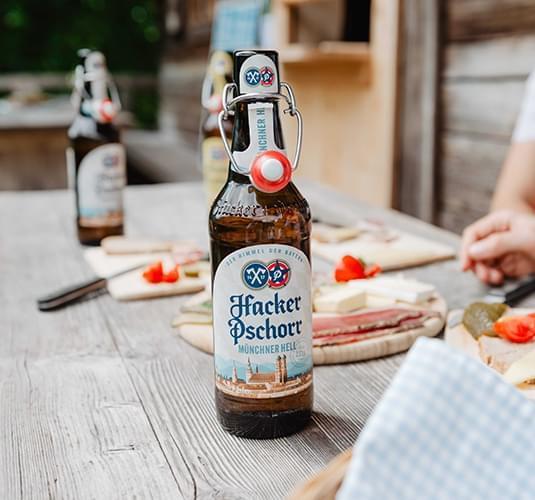
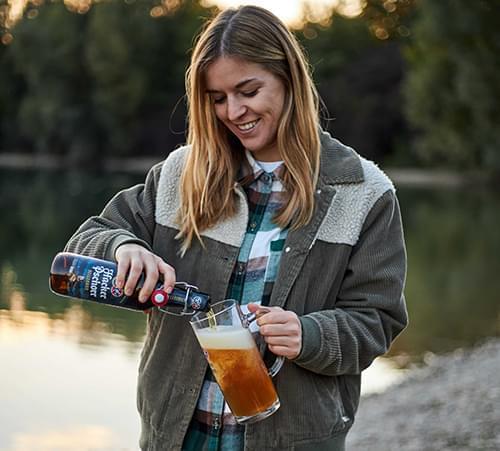
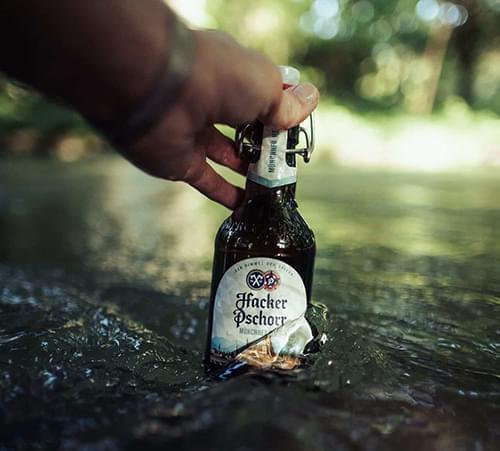
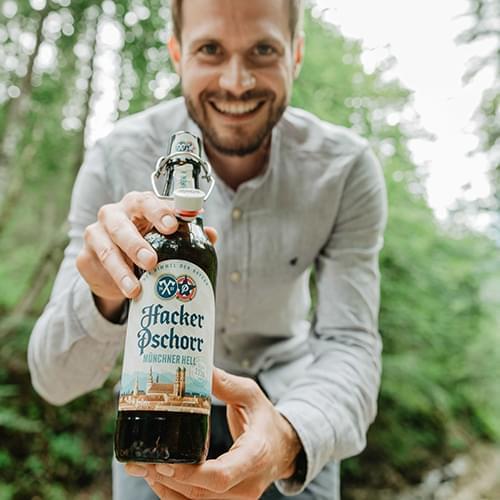






Traditional Recipes
Traditional Bavarian food improved by the personal finesse of Munich’s star chef Alfons Schuhbeck - your basic recipes for a Bavarian meal.
Classic Potato Soup
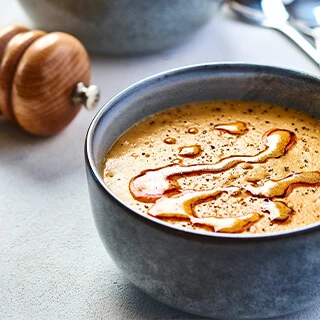
Ingredients:
50 g streaky bacon
150 g potatoes
2 onions
Carrots
Leek
Celery
0.3 l bouillon
Salt
Pepper
Nutmeg
Marjoram
Chopped parsley or chervil
Half a clove of garlic
Roasted bread pieces/croutons
Preparation:
Cut the potatoes in 1 cm large pieces, cube the streaky bacon, carrots, leek, onions, garlic and celery in very small pieces (brunoise), chop the herbs, sautée the streaky bacon, onions, vegetables and garlic. Add the potatoes and fill up with bouillon, let it simmer for about 15 to 20 minutes. Season the soup, serve the soup with chopped parsley or chervil and roasted bread pieces.
Pork Roast
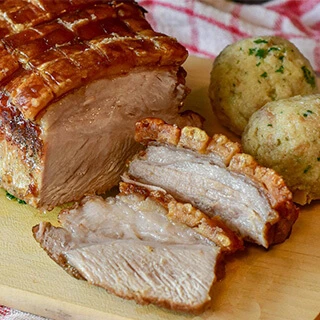
Ingredients:
2 kg pork shoulder with rind
Some caraway seeds
A pinch of salt
A bit of pepper
3 onions
2 large carrots
Leek, pcs 1
Half a celery
1 l Hacker-Pschorr dark beer
1.5 l vegetable or chicken stock
Preparation:
Cut the rind with a very sharp knife into diamond shape or already have it pre-cut by the butcher. Rub the rind and the meat with lots of coarse salt, caraway seeds and pepper. Give the meat with the skin facing down to the roasting pan, with about 0.5 litres of boiling stock poured over, and cook for 0.5 hour on the middle rack in oven at 190 °C.
Take out roast, add chopped onion, carrots, celery and leek, and add the roast again with the skin side up. Roast for another 1.5 to 2 hours in the oven at 150 °C. Brush the roast every now and then with the gravy in the roasting pan.
About 30 minutes before end of cooking time, turn oven to 220 °C, provide top heat, and pour
Pork Knuckle
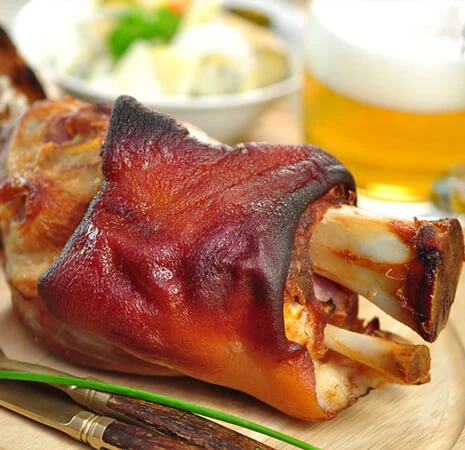
Ingredients:
4 pork knuckles (about 250 g each)
1 l Paulaner beer Lager or dark
125 ml vegetable stock
A bit of caraway seed
3 tomatoes
2 onions
1 bunch mirepoix
5 pieces of clove
A bit of whole white pepper
2 laurel leaves
Salt, pepper, paprika
Preparation:
Bring water with laurel leaves, white pepper beans and cloves to the boil. Add pork knuckle and simmer for about 30 to 40 minutes.
Preheat the oven at 250 °C. Chop mirepoix, onions and tomatoes and place in dripping tray of oven. Place the oven grid above dripping tray and place the pork knuckle on it after it has been well drained.
Add the stock to the vegetables and move all into the preheated oven for about 60 to 90 minutes depending on the thickness of each pork knuckle. About every 15 minutes, deglaze the pork knuckles with the beer.
Pass roasting juices in dripping tray through a sieve.
Add a knob of butter and stir well to bind sauce better. Serve with potato dumpling and Bavarian coleslaw.
Shredded
Caramelized Pancake
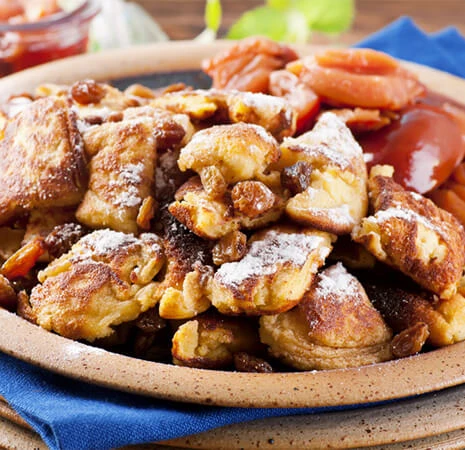
Ingredients:
155 g flour
0.5 l milk
100 g sugar
One quarter of a Lemon
A bit of rum
2 eggs
A handful of Raisins
20 g butter
Icing sugar
100 g plum or apple compote
A handful of almonds
Preparation:
Stir flour, milk, a dash of salt, lemon grit and rum. Separate eggs and add the egg yolk to the flour-mix, then stir the flour mix.
Whisk egg whites with sugar and pinch of salt to a creamy texture - when egg white form firm peaks when whisking, it is ready. Carefully fold the egg whites under the batter mix.
Put butter oil in a pan, pour the batter in the pan cover with a few raisins and almonds, and bake in the oven at 200 °C. When the pastry is dry on top, break it in pieces with two forks. Put icing sugar on top. Butter sliced on top of the pancake pieces. Caramelize it with the icing sugar and the butter in the pan. Put on a plate and put again icing sugar on top.
Serve with plum or apple compote.
Obatzda
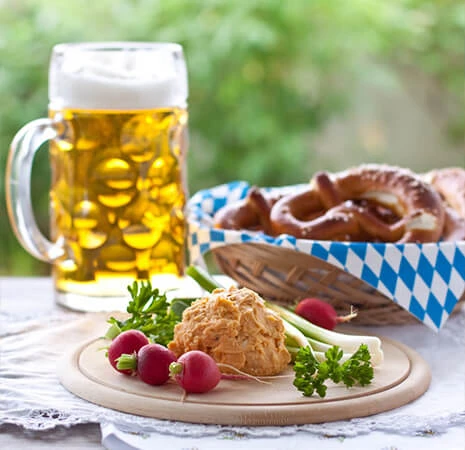
Ingredients:
1 kg Camembert
250 g butter
2 egg yolks
1 onion
Paprika powder
Caraway seeds
Salt, pepper
1 bunch of fresh chives
1 red onion
Preparation:
Chop the camembert in small pieces and whisk it with butter. Chop onion into brunoise (cubes), add, together with the egg yolk, to the cheese butter mix, and stir again.
Add caraway seeds and paprika powder, mix again. Season it with salt. Garnish with freshly chopped chives and rings of red onion.
TIMELINE
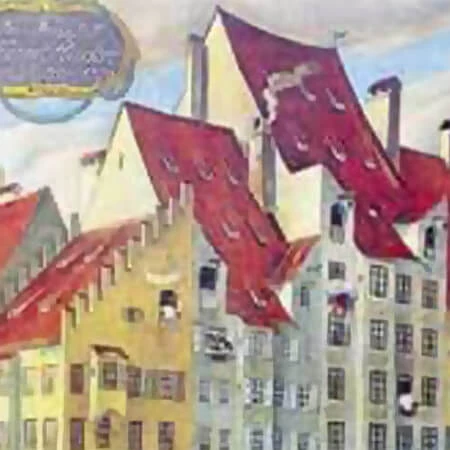
1417
The first Hacker brewery was mentioned in 1417, located at the corner of Sendlinger and Hackenstrasse in Munich. Today the site of the former brewery is home to the “Altes Hackerhaus“ restaurant and is still a popular meeting place for all friends of Hacker-Pschorr.
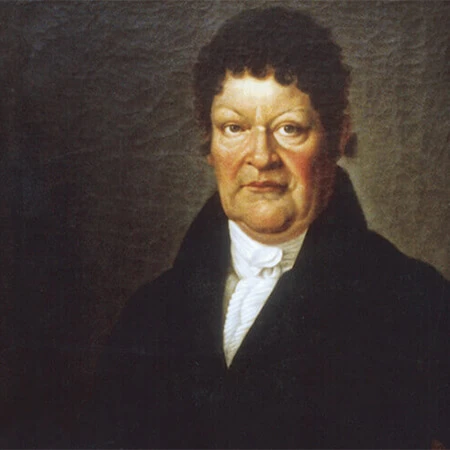
1793
The 23-year-old brewery servant Joseph Pschorr marries Maria Theresia Hacker, daughter of the brew master Peter Paul Hacker and acquires his father-in-law’s house and brewery. Over the next 15 years, through hard work and with a talent for business, he transforms the small Hacker Brewery into the top brewery among some 50 operating in Munich.
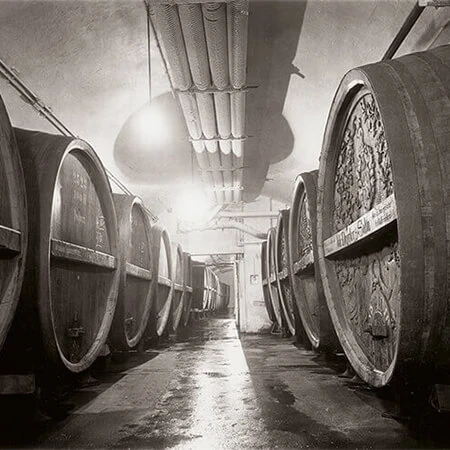
1813
It will take another ten years for Hacker “beer fortress“ to be constructed, Germany’s largest storage cellar located in the Landsberger Strasse. The gigantic brewery and storage cellar is 43,000 square feet with a capacity of nearly 30,000 barrels. Its underground cellars are 12 meters deep.
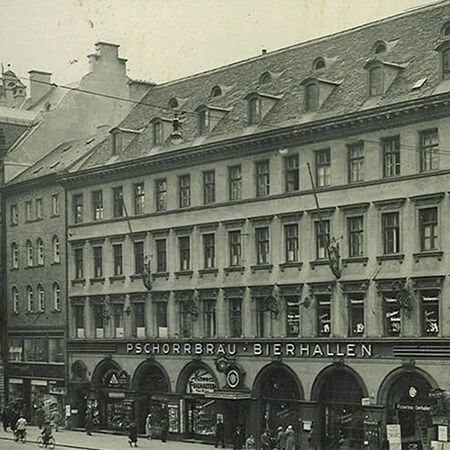
1820
Despite his huge investments for the construction of the “beer fortress“, Joseph Pschorr purchases the Bauernhansl Brewery and other buildings in the Neuhauser Strasse to build the Pschorr Brewery.
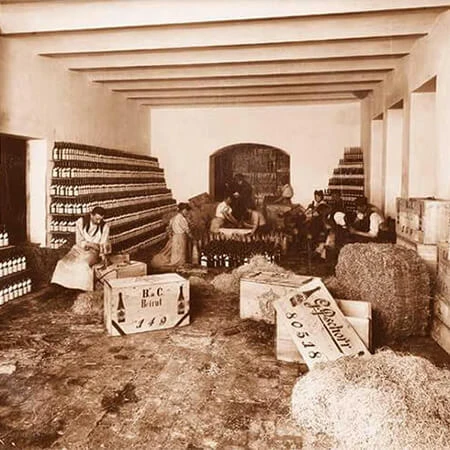
1841
Joseph Pschorr bequeaths equal shares of the brewery to his sons Georg Pschorr Sr, who takes over the Pschorr Brewery, and Matthias Pschorr Sr, who takes over the Hacker Brewery. The two independently operated breweries benefit from a direct rail line connecting to the train net-work for their high volume of export all over the world.
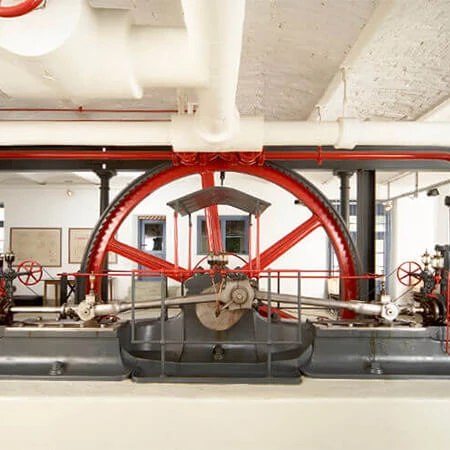
1873
Inspired by the invention of the steam engine, Carl von Linde builds his first artificial ice machine. Joseph Pschorr started using natural ice in 1823 to keep his Beer Fortress cold and create a consistent beer quality. The invention of refrigeration eliminated the difficult transport of natural ice.
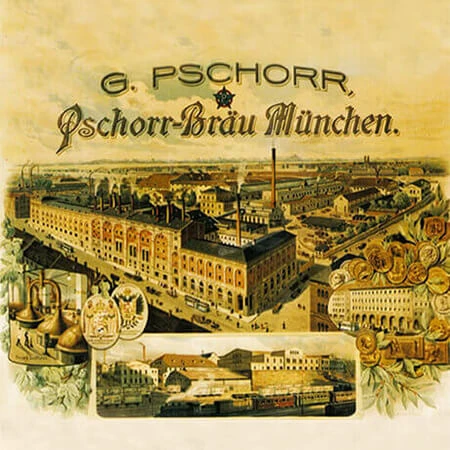
1864 - 1894
Georg Pschorr Jr becomes the owner and assumes management of the Pschorr Brewery. During nearly 21 years of uninterrupted construction, he realizes his life’s goal - to build a new large brewery with the most advanced equipment. The Pschorr Brewery is now an industrial company, with an annual output that will triple in the years.
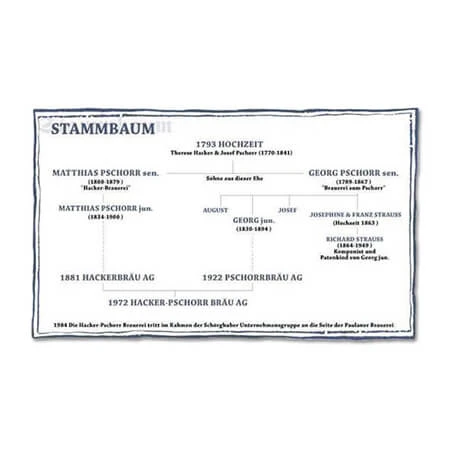
1972
The great social calamities of the first half of the 20th century - two world wars, inflation and the economic crisis led to changes in the beer market. There was an agreement to merge the two companies into the Hacker-Pschorr Bräu Aktiengesellschaft. Thus, a “reunification“ of two traditional companies was achieved.
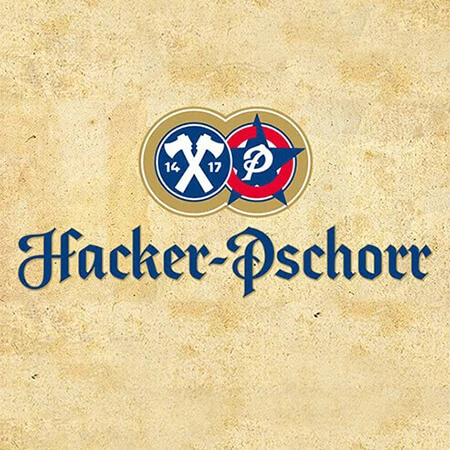
1979
The Munich businessman Josef Schörghuber assumes a majority shareholding of Hacker-Pschorr AG.
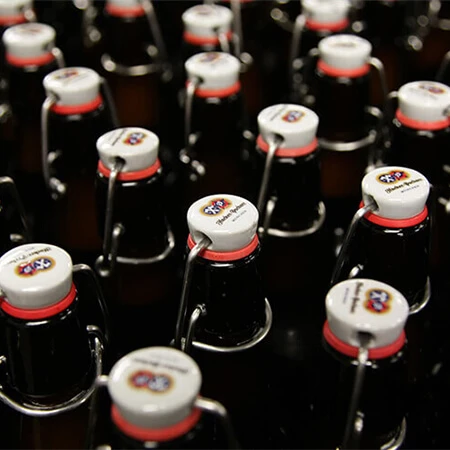
2007
Hacker-Pschorr is the first Munich brewery to switch its full range of beers to traditional swing tops.











1417
The first Hacker brewery was mentioned in 1417, located at the corner of Sendlinger and Hackenstrasse in Munich. Today the site of the former brewery is home to the “Altes Hackerhaus“ restaurant and is still a popular meeting place for all friends of Hacker-Pschorr.

1793
The 23-year-old brewery servant Joseph Pschorr marries Maria Theresia Hacker, daughter of the brew master Peter Paul Hacker and acquires his father-in-law’s house and brewery. Over the next 15 years, through hard work and with a talent for business, he transforms the small Hacker Brewery into the top brewery among some 50 operating in Munich.

1813
It will take another ten years for Hacker “beer fortress“ to be constructed, Germany’s largest storage cellar located in the Landsberger Strasse. The gigantic brewery and storage cellar is 43,000 square feet with a capacity of nearly 30,000 barrels. Its underground cellars are 12 meters deep.

1820
Despite his huge investments for the construction of the “beer fortress“, Joseph Pschorr purchases the Bauernhansl Brewery and other buildings in the Neuhauser Strasse to build the Pschorr Brewery.

1841
Joseph Pschorr bequeaths equal shares of the brewery to his sons Georg Pschorr Sr, who takes over the Pschorr Brewery, and Matthias Pschorr Sr, who takes over the Hacker Brewery. The two independently operated breweries benefit from a direct rail line connecting to the train net-work for their high volume of export all over the world.

1873
Inspired by the invention of the steam engine, Carl von Linde builds his first artificial ice machine. Joseph Pschorr started using natural ice in 1823 to keep his Beer Fortress cold and create a consistent beer quality. The invention of refrigeration eliminated the difficult transport of natural ice.

1864 - 1894
Georg Pschorr Jr becomes the owner and assumes management of the Pschorr Brewery. During nearly 21 years of uninterrupted construction, he realizes his life’s goal - to build a new large brewery with the most advanced equipment. The Pschorr Brewery is now an industrial company, with an annual output that will triple in the years.

1972
The great social calamities of the first half of the 20th century - two world wars, inflation and the economic crisis led to changes in the beer market. There was an agreement to merge the two companies into the Hacker-Pschorr Bräu Aktiengesellschaft. Thus, a “reunification“ of two traditional companies was achieved.

1979
The Munich businessman Josef Schörghuber assumes a majority shareholding of Hacker-Pschorr AG.

2007
Hacker-Pschorr is the first Munich brewery to switch its full range of beers to traditional swing tops.

Das gesuchte Produkt ist nur saisonal verfügbar. Gerne unterstützen wir Sie bei der Suche nach einem Lieferanten. Bitte verwenden Sie dazu unser Kontaktformular.
Beer-Finder
On the following website you can find our Beer Finder to see where you can purchase Hacker-Pschorr beers in your area.
If you cannot find a suitable dealer in the dealer search, please use the following form.


